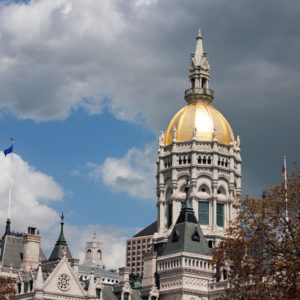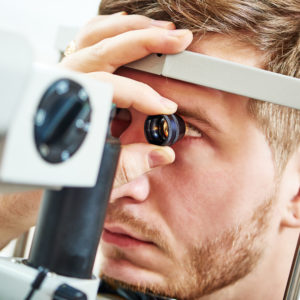Optometric Practice in Connecticut

Life in Connecticut
Conveniently located near both Boston and New York City, the state of Connecticut offers a slower-paced atmosphere along the east coast. The rural landscape of the Berkshire mountain range, quaint New England towns, and an atmosphere rich in academic prowess surround the state of Connecticut. Although it is the third-smallest state in the nation, Connecticut is home to twenty seven boarding schools. Additionally, the state is renown for its prominent academic institutions, including Yale and UConn.
The capital of Hartford is known for its wealth of diversity. The city celebrates several festivals throughout the year to honor its multi-cultural citizens including a Samba festival, Jewish film festival, Latino festival, and a West Indian parade. New Haven, home of Ivy-League Yale university, is known for its sprawling museums and centers of cultural antiquity. In fact, the Beinecke Library is home to the only surviving Gutenberg Bibles. The state is also home to other, smaller coastal towns like Greenwich, which is renown for its posh shopping experience and affluent retirement community.

Connecticut’s scope of practice for optometrists is far more inclusive than its neighbors of New York or Massachusetts. However, when it comes to scope expansion, the COA has not moved to introduce new legislation in over a decade. The most recent scope expansion occurred in 2007 when the state achieved a victory for advanced foreign body removal and glaucoma treatment.
The more recent actions of the Connecticut Association of Optometrists (COA) have been focused in the realm of telemedicine. The approval of House Bill 6012 would prohibit the use of information obtained from an eye test using a “remote refractive device” like a smartphone app as the sole basis for a obtaining or refilling a contact lens prescription. It would require an in-person examination for both the initial lens prescription and its first renewal.
Optometrists in Connecticut CAN:

- Prescribe any oral medications to diagnose and treat the visual system, including Schedule II-V medications
- Prescribe oral steroids
- Diagnose and treat glaucoma with topical drugs
- Co-manage post-operative care
- Perform procedures such as foreign body removal, dilation and irrigation, punctal occlusion, and eyelash epilation
- Prescribe and dispense spectacles and contact lenses
- Provide and aid in care of ocular prosthetics
- Order laboratory tests required for the examination, diagnosis, and treatment of a disease or condition related to the human eye
Optometrists in Connecticut CANNOT:
- Perform minor surgical procedures to correct ocular abnormalities, such as removal of “lumps and bumps” around the eye
- Treat glaucoma with oral medication unless in emergency situations
- Administer injections, including subcutaneous infiltrative, intralesional, intramuscular, intravenous, or subconjunctival routes
- Perform anterior segment laser procedures including YAG capsulotomy used to treat cloudy lens implants following cataract surgery, Selective Laser Trabeculoplasty (SLT), and Laser Peripheral Iridotomy (LPI) used to treat some forms of glaucoma
- Perform posterior segment or retinal laser procedures
Connecticut’s expansive scope of practice is due to the effort of the Connecticut Association of Optometrists, a branch of the American Optometric Association. It is imperative to continue to fight for scope expansion in order to practice optometric medicine to the highest standards taught to us. For more information about scope of practice in your state, click here.

